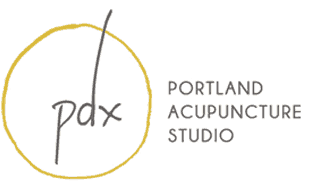
Avoid These Things When You Are Trying to Conceive
When you are trying to conceive, here is a list of things you should avoid.
1. Tobacco
If you or your partner smokes tobacco, even just socially, it’s best to quit before you start trying to get pregnant. Nicotine has been shown to reduce sperm quality, cause DNA abnormalities in sperm or eggs, and increase the chances of an ectopic pregnancy. Second-hand smoke is almost as damaging as smoking and can lead to significantly longer time to conceive.
2. Cannabis
Cannabis products are becoming more accessible, but they can delay ovulation, reduce sperm concentration, disrupt hormone balance, and increase the chances of miscarriage. We also know that marijuana crosses the placenta, but we don’t know how it affects the baby. The best choice is to avoid it altogether when trying to conceive.
3. Alcohol
Alcohol can also impact sperm quality and DNA abnormalities, as well as cause impotence and lowered libido. Any substance that impacts the DNA of either sperm or eggs can increase the chances of miscarriage due to genetic abnormalities. Even light alcohol intake is associated with lowered fertility and disrupted hormone balance.
4. Waiting until you’re pregnant to start taking a prenatal
Most people know it’s important to take a prenatal vitamin when you’re pregnant to ensure the baby gets enough of the various essential vitamins and minerals. Taking a prenatal vitamin before conceiving can help boost any vitamin deficiencies back into the normal range. Additionally, once you’re pregnant, the baby will take any nutrients she needs from your body, so the prenatal vitamin helps replace anything the baby needed. We recommend you take a high-quality prenatal vitamin with methylated B-vitamins.
5. Eating the ‘wrong’ type of dairy foods
People who produce eggs should eat full-fat dairy products because when the fat is removed from dairy, the result is a product with higher androgen hormones, which can impact ovulation and fertility. A daily dose of full-fat dairy showed a 25% lower risk of ovulatory disorders. The opposite is true for people who produce sperm – low fat dairy is better for fertility, but too much dairy overall can lower semen quality.
6. Eating high mercury fish
Mercury can build up in your body if you eat too much of certain types of fish. Mercury is harmful to fertility and can interfere with the development of a baby’s nervous system. The American College of Obstetricians and Gynecologists put out a recommendation in 2017 for people who are trying to become pregnant or are already pregnant. It suggests eating 1-3 servings of the good or best-choice fish on their list per week, but to avoid fish with the highest mercury levels, like:
- king mackerel
- marlin
- orange roughy
- swordfish
- shark
- tilefish
- tuna
There are plenty of other seafood options to choose from, including mercury-safe canned tuna, salmon, cod, crab, lobster, shrimp, scallops, tilapia and trout. These all contain good Omega-3 fatty acids, which are powerful antioxidants.
7. Blood sugar spikes
Poorly controlled blood sugar can cause inflammation, hormone imbalance, and impact fertility. One study from Japan showed that more sugar consumed in the months before an egg retrieval resulted in poorer quality eggs. Higher blood sugar is also associated with DNA damage in sperm. Fun fact: getting less than six hours of sleep at night can result in elevated blood sugar levels the next day – so be sure you sleep enough too!
8. Endocrine disruptors in your environment
There are a lot of endocrine disruptors in our homes, cars, and workplaces. Some of the easiest ones to change are cleaning products (look for non-toxic, environmentally friendly cleaners, detergent, fabric softener, and dryer sheets). Look for products without parabens, phenols, phthalates, or fragrances. Also, try to take all plastic out of your kitchen – don’t cook food with plastic utensils, don’t store warm or hot food in plastic, don’t reheat food in plastic. Choose stainless steel, ceramic, or cast-iron pots and pans to avoid chemicals leeching into your food while you cook.
9. Endocrine disruptors on your body
Similar to the endocrine disruptors in your environment, look for non-toxic lotion, sunscreen, make-up, soap, and anything else you put on your skin. Again, look for products without parabens, phenols, phthalates, or fragrances. Some chemicals that help products penetrate the skin have hormone-disrupting properties. Check the Environmental Working Group’s Skin Deep Database for information about which products have the least toxicity.
10. Sperm-harming lubricants
Fertility-friendly lubricants are made to mimic cervical mucus and pH neutral, which is important for sperm longevity and motility. As with the endocrine disruptors above, make sure any lubricant you choose does not have glycerol, parabens, or fragrances, all of which are endocrine-disruptors. Also look for lubricants cleared by the Food and Drug Administration as fertility-friendly.
Now that you know the things to avoid when you are trying to conceive, your path to meeting your baby just got a little easier!
Established patients can schedule online, patients who haven’t seen us at Kwan Yin Healing Center call (503) 701-8766, or email us to schedule your appointment.




